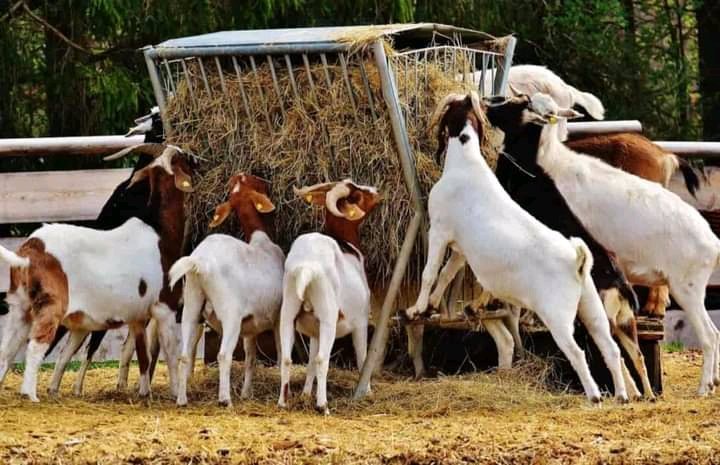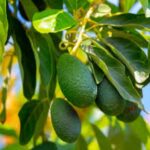High-Value cash crops for export in Africa

For ages, Agriculture has been the backbone of Africa’s economy.
Beyond feeding the continent,it is also a source of wealth through cash crops that connect African markets to Global markets.With a sharp rise in demand for exotic, organic and healthy foods, Africa is currently positioned to benefit from the export of high-value crops.
Below is a list of the most profitable cash crops for Export in Africa.
Coffee: Africa’s brown gold
Coffee has long been one of Africa’s most valuable exports.
Countries such as Ethiopia, Uganda, Kenya and Rwanda are globally recognized for producing unique coffee varieties with distinct flavors. Specialty coffee markets continue to grow, giving African farmers a competitive edge.
Export demand remains strong in Europe, the USA, the Middle East and Asia. Farmers who move beyond selling raw beans into value addition through roasting and packaging are able to capture higher profit margins. With its global reputation and consistent demand, coffee remains one of Africa’s most reliable high-value export crops.
Cocoa: The chocolate treasure
Africa dominates cocoa production, with Ivory Coast and Ghana accounting for over 60% of the global supply. Cocoa is the primary ingredient in chocolate, making it one of the most sought-after commodities worldwide.
The main buyers are chocolate manufacturers in Europe and North America and demand continues to grow steadily. Farmers who join cooperatives or secure fair-trade certifications often enjoy better returns. With billions spent annually on chocolate consumption, cocoa remains a golden opportunity for African farmers.
Tea: A consistent export earner
Tea is another important export crop, particularly in Kenya, which is the third-largest exporter in the world. African tea is valued for its strong flavor and quality, making it popular in the Middle East, Asia and Europe.
While traditional black tea dominates the market, specialty teas such as purple tea and organic green tea are gaining traction. These niche products fetch higher prices and are appealing to health-conscious consumers. For farmers, tea remains a stable and profitable option.
Avocado: The green gold
Avocado farming has emerged as a booming export business in Africa.
The Hass variety is especially popular for its creamy taste and long shelf life, making it a favorite in international markets. Countries such as Kenya, South Africa, Rwanda and Tanzania are rapidly expanding their avocado exports.
The fruit is in high demand in Europe, the Middle East and China, driven by health and wellness trends.
To succeed in the export market, farmers must focus on quality, meet international standards and secure certifications. With demand rising, avocado is one of Africa’s most profitable modern cash crops.
Macadamia Nuts: A premium export
Macadamia nuts are among the world’s most expensive nuts, and Africa is a growing producer. Countries like Kenya, Malawi, South Africa and Zimbabwe are cashing in on this trend.
Although the trees take years to mature, they provide farmers with long-term income once established. The nuts are in high demand in the USA, Europe and China, where they are used in snacks, cooking and cosmetics.
Farmers who process macadamia into packaged snacks or oils increase their profit margins significantly.
Flowers: Blossoming exports
The floriculture industry is thriving in Africa, with Kenya and Ethiopia being among the world’s leading exporters of cut flowers. Roses are the most popular, with steady demand in Europe, the Middle East and the UK.
Thanks to Africa’s favorable climate, flowers can be grown year-round, giving the continent a competitive advantage.
Exporters benefit most during peak seasons such as Valentine’s Day and Mother’s Day. For farmers with access to greenhouses and irrigation, flower farming offers a lucrative export opportunity.
Vanilla: The spice that pays
Vanilla is one of the most expensive spices globally and Madagascar is the world’s leading supplier, providing up to 80% of global production. Other countries such as Uganda and Comoros are also making strides in vanilla farming.
International demand is high in the food, beverage and cosmetic industries, especially for organic and sustainably grown vanilla.
With prices fetching hundreds of dollars per kilogram, vanilla farming is highly profitable but requires patience and careful handling.
Spices: Rising global demand
Beyond vanilla, spices such as ginger, turmeric, garlic and black pepper are gaining momentum as high-value export crops.
Driven by health-conscious consumers, the pharmaceutical industry and global cuisine trends, demand for these spices is rising steadily.
Countries like Nigeria, Ethiopia, and Tanzania have strong potential in spice production. Export markets include India, the Middle East, Europe and the USA. Drying, grinding and packaging spices locally increases shelf life and boosts profitability.
Cashew Nuts: A growing industry
Cashew production is thriving in Tanzania, Mozambique and Nigeria, where favorable conditions support large-scale farming. Cashews are widely consumed in snack industries and also processed into oils and butter.
The largest export destinations are India, Vietnam, Europe and the USA.
Farmers who process cashews into roasted or packaged nuts earn more than those exporting raw produce. With global consumption rising, cashew nuts are an increasingly profitable cash crop.
Sesame Seeds: Small but mighty
Sesame seeds may be tiny, but they are one of the fastest-growing export commodities from Africa. Used in cooking, baking and oil production, sesame enjoys strong demand in China, Turkey, Japan and the Middle East.
Countries such as Sudan, Nigeria and Ethiopia are leading producers.
Farmers who ensure proper cleaning, drying and packaging can attract premium buyers. With relatively low input costs, sesame farming is an attractive option for smallholder farmers.
Africa is blessed with fertile soils, diverse climates and an ever-expanding global market for agricultural products. Export-oriented cash crops such as coffee, cocoa, avocados, nuts, flowers and spices offer farmers the chance to earn higher incomes and contribute to national economies.










